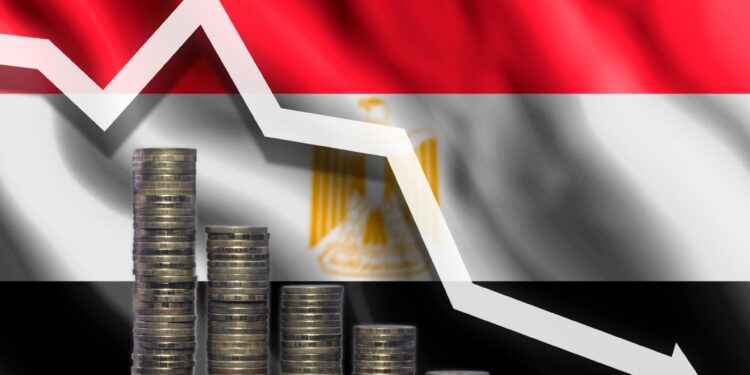The deficit in Egypt’s net foreign assets increased by 10.5 billion Egyptian pounds ($340.36 million) last October to reach its highest levels ever at negative 839.2 billion pounds, which is mainly due to an increase in central bank liabilities, according to bank data. .
This is the second month in a row in which the deficit has worsened after shrinking in the past July and August.
Net foreign assets represent: the assets of the central bank and commercial banks owed by non-residents, minus their liabilities.
The 29.7 billion pound increase in central bank liabilities last October was partially balanced by a 12.4 billion pound increase in foreign assets held by commercial banks.
The Central Bank has relied on the country’s foreign assets to help support the Egyptian currency over the past two years.
In September 2021, the value of net foreign assets was positive 248 billion pounds.
The total amounts that left the country exceeded $23 billion in the first two months of the Ukrainian war, according to previous press statements by Finance Minister Mohamed Maait.
Egypt is facing an economic crisis amid record inflation and a severe shortage of foreign currency, in addition to the rise in borrowing over the past eight years, which has made repaying foreign debt an increasingly burdensome burden.
Cairo imposed restrictions on imports in light of the shortage of foreign currency.
Egypt reduced the value of its currency by about half in the period from March 2022 to March 2023, but has since left it stable at 30.85 pounds to the dollar.
The pound was trading on Thursday at about 48 pounds on the black market.
Egypt is looking forward to obtaining a loan from the International Monetary Fund, and the Fund’s director, Kristalina Georgieva, said last November that the International Monetary Fund was “seriously studying” a possible increase in the loan program for Egypt amounting to $3 billion as a result of the economic difficulties resulting from Israel’s war on Gaza.



